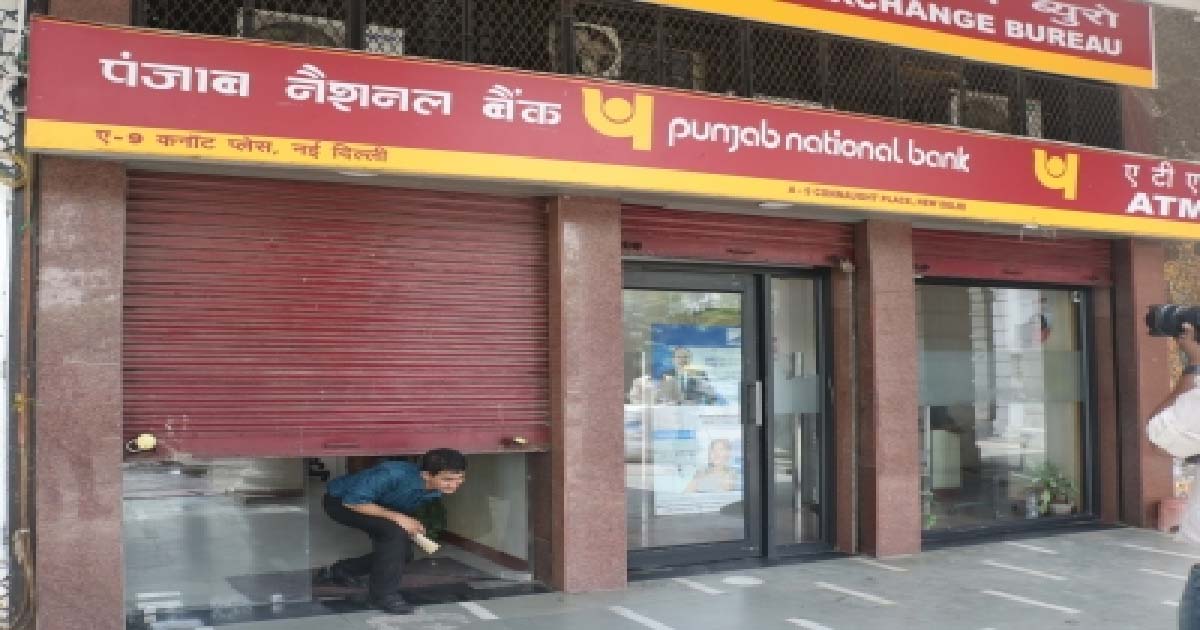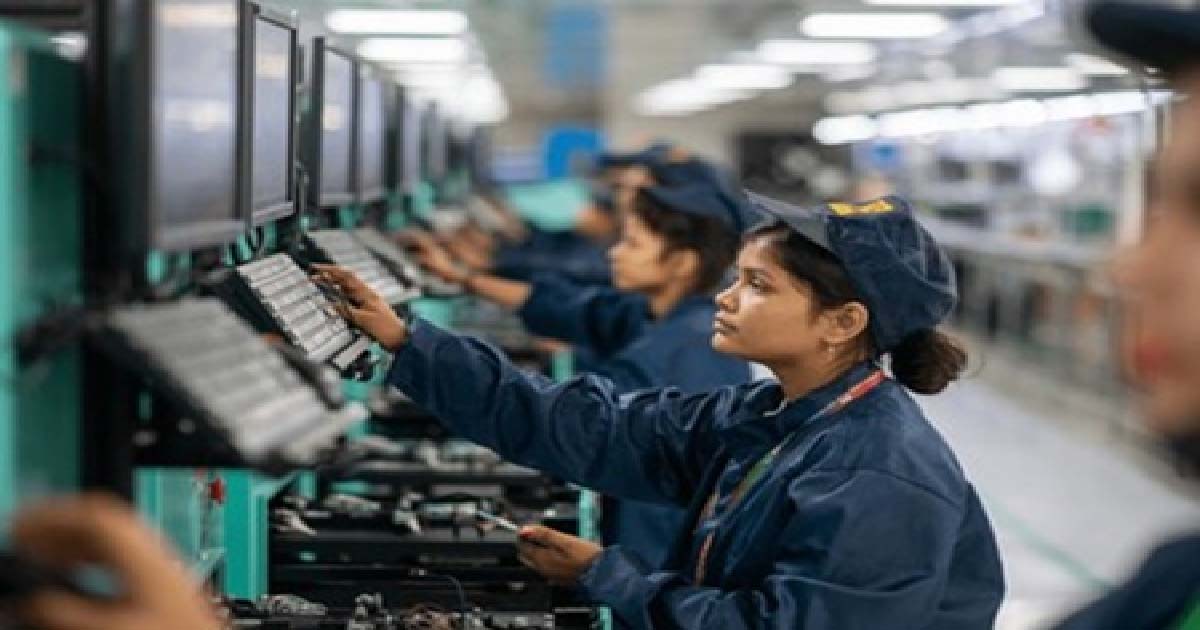Business
Level-playing field between private, public 5G networks absurd: BIF

Amid calls to ensure a level-playing field between public and private 5G networks, Broadband India Forum (BIF) on Tuesday said that such demands are ‘absurd and impractical’ as the two 5G networks are entirely different set of services for two entirely different requirements.
Nowhere in over 55 countries where private 5G networks are deployed have similar regulations been issued, said the think tank, as the two networks are on completely different footings and are not competing with each other.
“Seeking a level-playing field with enterprises for captive private networks is akin to a child in kindergarten being asked to compete with someone who has a doctoral degree. No mature regulator anywhere in the world imposes regulation on a player with no or minimal market share,a said BIF President TV Ramachandran.
Enterprises will not be in the business of selling services or earning revenues through private 5G networks, but only use it for self-consumption.
“The credibility and rationale of such claims are questionable and require introspection,” he said in a statement.
Private 5G networks are about the deployment of high speed, enhanced data capacity, and ultra-low latency applications inside a closed manufacturing unit, hospital, airport, shipping port, among others.
Private 5G networks are single end-user (the enterprise itself) in the given location, unlike a vast number of users in public networks.
In the case of private networks, the quantum of spectrum required is very small (going up to about 100 MHz) unlike the huge amounts of spectrum (almost 72000 MHz) used by public networks.
“While public networks are configured for ‘best effort’ service-level agreements (SLAs) to deliver average performance for external voice and data connectivity, private 5G Networks are meant to serve extremely high reliability and ultra-high SLAs with extremely low latency applications and ultra-high data rates,: the forum argued.
The telcos can operate their networks in full power, whereas private networks have to restrict power to a regulated level just like Wi-Fi networks, to prevent signals spilling out of their premises.
Hence, the same spectrum can be re-used many times across multiple different locations, unlike the case of public 5G networks.
“Private networks are not in the business of selling telecom services and earning revenues from it, but would be using the same purely for self-consumption,” said the forum.
The spectrum that is earmarked for private networks needs to be exclusive and distinct from those bands for Public 5G, to avoid needless possibilities of interference between the two networks.
“Seeking a level playing field with enterprises for captive private networks is akin to a child in kindergarten being asked to compete with someone who has a doctoral degree,” said Ramachandran.
The Union Cabinet last week approved the telecom department’s proposal to conduct 5G spectrum by the end of next month.
The Notice Inviting Applications (NIA) for the spectrum auction permits all the four methods of allocating spectrum for Private 5G Networks as recommended by the Telecom Authority of India (TRAI), including the option of enterprises obtaining spectrum directly from the Department of Telecommunication (DoT).
This provides enterprises the much-required right to develop their private 5G networks based on the specialised requirements for their distinctive captive use.
Leading industry bodies have hailed the TRAI recommendations of around 35-40 per cent cut in the reserve price for 5G spectrum for mobile services, terming it historic and which can finally put India on the world 5G map.
The telecom regulator has put forward a mega auction plan valued at over Rs 7.5 trillion at the base price allocated over 30 years.
Business
PNB declares Rs 2,434 crore alleged loan fraud against former promoters of Srei firms

New Delhi, Dec 27: Punjab National Bank (PNB) has declared a Rs 2,434 crore alleged loan fraud by the former promoters of Srei Equipment Finance and Srei Infrastructure Finance.
In a late evening exchange filing, the state-run PNB said that “Pursuant to the applicable provisions of SEBI (LODFR) Regulations, 2015 and the Bank’s Policy for determining materiality of events/information required to be reported to the Stock Exchanges, it is hereby informed that the bank has reported borrowal fraud to RBI against the erstwhile promoters of Srei Equipment Finance and Srei Infrastructure Finance”.
PNB said that of the total fraudulent borrowings, Rs 1,240.94 crore is related to Srei Equipment Finance and the remaining Rs 1,193.06 crore is related to Srei Infrastructure Finance.
The public sector lender also said it has 100 per cent provisions for these loans. The bank said the declaration of these two accounts as frauds is based on a forensic audit, which pointed to irregularities such as loans to connected parties and potential evergreening of loans.
However, Srei group has challenged the forensic audit report as the basis for the fraud classification, noting the matter is subjudice.
Other banks such as Punjab & Sind Bank, Bank of Baroda, and Union Bank of India have also earlier declared a loan fraud in connection with Srei companies.
The Srei group has been undergoing an insolvency resolution process since 2021, and the National Company Law Tribunal has approved a resolution plan submitted by the National Asset Reconstruction Company in 2023. The Srei group was sent to the NCLT by the Reserve Bank in October 2021 after it had found governance issues and defaults and the regulator superseded the boards of Srei Infrastructure Finance and Srei Equipment Finance.
In February 2023, NARCL emerged as the successful bidder for SIFL and SEFL which together owed Rs 32,750 crore to lenders. NARCL won the bid in February 2023, got the NCLT approval in August 2023, and finalised the acquisition by January 2024.
Business
India 2nd largest mobile manufacturing country in the world: Minister

New Delhi, Dec 27: India has ramped up electronics production six-fold and is the second largest mobile manufacturing country in the world, Union Minister of Electronics and Information Technology Ashwini Vaishnaw said on Saturday.
In multiple posts on social media platform X, Vaishnaw said that the country has increased electronic exports eightfold over the past 11 years, mainly driven by policy support from the Production Linked Incentive Scheme.
The PLI scheme for Large Scale Electronics Manufacturing has attracted over Rs 13,475 crore in investment and helped achieve production of about Rs 9.8 lakh crore in the electronics sector, driving manufacturing, jobs, and exports, he said.
Vaishnaw highlighted that “over 1.3 lakh jobs were created in the last five years and that electronics is now India’s third‑largest export category, climbing from seventh place”.
He said the country was initially focusing on finished products, but the Electronics Component Manufacturing Scheme supported a shift to “building capacity for modules, components, sub-modules, raw materials, and the machines that make them.”
The Electronics Component Manufacturing Scheme has 249 applications representing Rs 1.15 lakh crore in investment, Rs 10.34 lakh crore in production, and creating 1.42 lakh jobs, the post said, adding it is the highest-ever investment commitment in India’s electronics sector, indicating industry confidence.
Vaishnaw also noted progress in the semiconductor sector, saying ten units have been approved, with three already in pilot or early production. The minister said that “fabs and ATMPs from India will soon supply chips to phone and electronics manufacturers”.
“Electronics manufacturing created 25 lakh jobs in the last decade. This is the real economic growth at the grassroots level,” the minister said.
“As we scale semiconductors and component manufacturing, job creation will accelerate. From finished products to components, production is growing. Exports are rising. Global players are confident. Indian companies are competitive. Jobs are being created. This is ‘Make in India’ impact story!” he noted.
Business
Indian stock market ends holiday-shortened week in positive terrain

Mumbai, Dec 27: Indian equity markets ended the week in a positive terrain, buoyed by expectations of stronger domestic demand, a favourable liquidity outlook and optimism over potential Fed policy easing in 2026, analysts said on Saturday.
The holiday-shortened week opened with a bullish undertone; however, momentum tapered off as the days progressed.
On Friday, Sensex closed at 85,041.45, slipping 367.25 points or 0.43 per cent. Nifty also ended in the red, falling 99.80 points or 0.38 per cent to settle at 26,042.30.
According to market watchers, the year-end lull kept trading largely range-bound, with hopes for a Santa Claus rally diminishing amid the absence of fresh catalysts, limited progress in US–India trade talks, and caution ahead of the upcoming earnings season.
“Sectoral trends were mixed, marked by selective profit booking across most segments, while metals, FMCG, and media stocks offered notable resilience,” said Vinod Nair, Head of Research, Geojit Investments Ltd.
Nifty 50 ended the week at 26,042, continuing to respect its long-term rising channel on the daily chart. The index remains comfortably above the 20-day EMA cluster, preserving the medium-term bullish structure, said analysts, adding that as long as Nifty sustains above the 26,000–25,900 support zone, the overall bias remains positive.
On the domestic front, RBI’s liquidity interventions, such as open market operations and a USD/INR buy–sell swap, helped stabilise the rupee, though persistent FII outflows continued to weigh on sentiment.
Meanwhile, gold advanced on safe-haven demand, while crude prices hovered near multi-year lows, though U.S. steps to tighten pressure on Venezuelan oil shipments could exert upward pressure in the near term
Looking ahead, market sentiment is likely to stay cautious as investors brace for the upcoming earnings season while remaining attuned to global developments and currency movements, said analysts.
Attention will also turn to next week’s data releases, including India’s industrial and manufacturing output figures, manufacturing PMI, and the US FOMC minutes, said Nair.
-

 Crime3 years ago
Crime3 years agoClass 10 student jumps to death in Jaipur
-

 Maharashtra1 year ago
Maharashtra1 year agoMumbai Local Train Update: Central Railway’s New Timetable Comes Into Effect; Check Full List Of Revised Timings & Stations
-

 Maharashtra1 year ago
Maharashtra1 year agoMumbai To Go Toll-Free Tonight! Maharashtra Govt Announces Complete Toll Waiver For Light Motor Vehicles At All 5 Entry Points Of City
-

 Maharashtra1 year ago
Maharashtra1 year agoFalse photo of Imtiaz Jaleel’s rally, exposing the fooling conspiracy
-

 National News1 year ago
National News1 year agoMinistry of Railways rolls out Special Drive 4.0 with focus on digitisation, cleanliness, inclusiveness and grievance redressal
-

 Maharashtra1 year ago
Maharashtra1 year agoMaharashtra Elections 2024: Mumbai Metro & BEST Services Extended Till Midnight On Voting Day
-

 National News1 year ago
National News1 year agoJ&K: 4 Jawans Killed, 28 Injured After Bus Carrying BSF Personnel For Poll Duty Falls Into Gorge In Budgam; Terrifying Visuals Surface
-

 Crime1 year ago
Crime1 year agoBaba Siddique Murder: Mumbai Police Unable To Get Lawrence Bishnoi Custody Due To Home Ministry Order, Says Report












